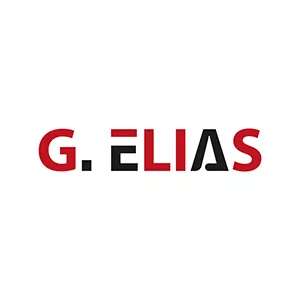- within Media, Telecoms, IT and Entertainment topic(s)
- in Australia
- within Insolvency/Bankruptcy/Re-Structuring, International Law, Government and Public Sector topic(s)
- with readers working within the Law Firm industries
Introduction
On July 29, 2024, the Nigerian Communications Commission (the “NCC”), in exercise of the powers vested in it under section 70 (d) of the Nigerian Communications Act, 2003 (the “NCA” or “Act”) empowering the NCC to enact regulations specifically on quality of service (“QoS”) in the telecommunications industry, issued the Nigerian Communications (Quality of Service) Regulations, 2024 (the “Regulations”). Further, the NCC on August 2024, issued the Quality of Service Business Rules, 2024 (the “Business Rules”) (together, the “New Rules”) to compliment the Regulations with further technical details on the minimum quality and standard of service expected on telephone quality and other communications services in Nigeria.
The New Rules emphasise on the NCC's critical role of setting mandatory standards for QoS of telecommunication services providers (“Licensees”). The New Rules aim to regulate and enhance the quality of telecommunications service in Nigeria, by ensuring that Licensees adhere to standard parameters across the industry through the delivery of reliable, efficient, and consumer-focused communication services.
Given the (i) rapid advancements in technology (ii) increasing inevitability of reliance on digital communication; and (iii) outcry from consumers on poor communication services provided by some Licensees1 , the New Rules are well timed and crucial for the protection of consumer rights and maintaining a telecommunications infrastructure capable of supporting the growing demands of individuals and businesses alike. In this paper, we highlight succinctly the key provisions introduced by the New Rules and discuss the potential overall impact of the New Rules on the telecommunications industry in Nigeria.
Quality of Service Regulations, 2024
The key objectives behind the Regulations include (i) the protection of consumers against unfair practices relating to tariffs, charges, availability and quality of communication services and facilities; (ii) the identification of points of deficiencies and effecting changes; and (iii) making adequate information available to help consumers make informed choices of services and service providers. Notably, the Regulations repealed the Quality of Service Regulations, 2013 (the “Repealed Regulations”).2 However, we note that for the most part, the Regulations replicates the Repealed Regulations. Below, we highlight the significant changes introduced by the Regulations:
- QoS Ranking System: The Regulations provides that the NCC may develop a QoS ranking system for its Licensees. This ranking system is based on the attainment of predefined thresholds and parameters to be set by the NCC, allowing for a transparent and objective assessment of the Licensees.3
- Expansion of the Definition of a Licensee: The Regulations has revised the definition of a Licensee to mean a person who either holds an individual license or engages in activities covered by a class license granted under the NCA. Under the Repealed Regulations, a licensee was categorized as any person providing fixed or mobile telephony services in Nigeria.4 However, the New Rules expands the applicability of the Regulations to any holder of a license issued under the Act. By expanding the definition, more entities are accountable for maintaining service quality, thereby preventing regulatory gaps and ensuring that all relevant Licensees adhere to the same standards.5
- Imposition of Administrative Fines: The Regulations vests the NCC with the authority to impose administrative fines on Licensees who contravene the Regulations or fail to comply with set standards. Under the Repealed Regulations, NCC had no powers to administer administrative fines. However, the current regime introduces fines (discussed below) as a direct consequence for each instance of non-compliance. Licensees are required to settle these fines within fourteen (14) days of receiving notice of the fine from the NCC. Notably, the payment of an administrative fine does not preclude the NCC from taking further enforcement actions. Thus, the NCC reserves the authority to impose additional sanctions, as necessary, to address severe or repeated violations.6
- Schedule of Fines: The Regulations provide a robust schedule of finestied to failure to perform the key performance indicators (“KPIs”)7 set out for various network services, including 2G, 3G and 4G networks, data service, colocation service providers and point of interconnect KPIs. While the technical details of the KPIs are provided under the Business Rules, the fines under the Regulations range from (a) ₦5,000,000 (Five Million Naira) to ₦15,000,000 (Fifteen Million Naira) per reporting area/per each act of contravention; and (b) ₦500,000 (Five Hundred Thousand Naira) to ₦2,500,000 (Two Million Five Hundred Thousand) for each day a contravention subsists.8
Quality of Service Business Rules, 2024
The Business Rules issued pursuant to the Regulations9 contain technical details that outline rules for the implementation, effective management and monitoring of the QoS of telecommunications services in Nigeria. The Business Rules provides for the minimum quality and standards of service, measurements and KPIs for measuring QoS.
Below, we identify some of the key provisions of the Business Rules, focusing on the threshold targets, KPIs, customer care standards, network performance metrics, and reporting obligations of the Licensees.
- Threshold Targets and KPIs:10 The Business Rules sets KPIsthat Licensees must meet to ensure optimal service delivery. These KPIs are detailed across different service categories:
1.1. Wireline
Services: For fixed wireline telephony services, KPI
parameters include the disconnection complaint rate/resolution
time, fault report rate/repair time, and service supply time. For
instance, the Business Rules stipulates that disconnection
complaints should only affect less than 0.002% of customers, and
any such complaints should be resolved within one (1) working
day.11
1.2. Account
Complaint: The Business Rules specifiesstrict timelines
for resolving different types of complaints. This is particularly
related to incorrect charges, covering incorrect,double or
uncompleted calls SMS/MMS, unsolicited messages, network
performance, such as call completion rates, drop call rates, and
latency measurements for 3G, 4G, and 5G networks. For example,
incorrect billing of line rental must be resolved within five (5)
days, while complaints about charges for unrendered services must
be addressed within twenty-four (24) hours.
Notably, the Business Rules have reduced the time required to
process a request for blocking a reported lost or stolen SIM card,
once subscriber ownership is confirmed, from thirty (30) minutes in
the Repealed Regulations,12 to just five (5)
minutes. Additionally, any further usage of the SIM card should not
incur charges to the consumer from the moment the report is
filed. 13
1.3. Customer Care Accessibility: The Business Rules mandates that customer care lines should be easily accessible, with a maximum of three (3) call attempts for a customer to be connected to a live agent. Furthermore, the maximum waiting time to speak to a customer care representative on a customer care line should not exceed five (5) minutes and thirty (30) minutes for physical customer care centers. 14
- Network Performance Metrics: The Business
Rules provides for network performance KPIs, such as call
completion rates, handover success rates, and voice quality.
Highlighting some network performance KPIs, the Business Rules
requires that the call setup success rate for both circuit-switched
and packet-switched services on a 3G network must exceed 98%.
Additionally, the drop call rate at the Busy Hour
(BH),15 must be below 1% at the cell level and under
1.5% at the base station controller (BSC)16 level.
The Business Rules also introduced an extended timeline for resolving errors related to network upgrades, integrations, or cut-oversin telecommunications systems. These errors may involve Circuit Identification Code (CIC) mismatch, global cell identity error, improper neighbouring cell definition, neighbouring Mobile Switching Center (“MSC”) definition or roaming number of new MSCs. While the standard resolution time for these errors is set at less than one (1) hour, an extension of up to twelve (12) hours may be granted in exceptional cases, provided a valid justification is submitted to the NCC.
Furthermore, the Business Rules reduce the storage time of SMS/MMS by the Licensees from thirty (30) days in the Repealed Regulations,17 to a minimum of thirty (30) hours before deletion of the messages sent to mobile devices that are unreachable.18 - Reporting and Compliance Obligations: The Business Rules impose
stringent reporting obligations on Licensees. These reports must be
submitted to the NCC monthly, covering the period from the first
day to the last day of each calendar month, 19 detailing
the providers' performance against the set KPIs.
The Business Rules categorized Nigeria into three (3) priority reporting areas. For example, Lagos, Abuja, and Rivers State are classified as priority 1 areas20, requiring 100% compliance with KPI targets. In contrast, priority 2 areas21 require 80% compliance, while in priority 322, at least 70% compliance is required. This tiered approach ensures that high-density areas, where telecommunications demand is highest, receive the most attention from Licensees.23
Failure to meet the specified KPI targets in any priority area for more than ninety (90) days may result in regulatory actions by the NCC.24 Since the Business Rules form a part of the Regulations, regulatory actions like the imposition of fines and other penalties applicable under the Regulations may be meted out on Licensees.
Conclusion
As Nigeria continues to embrace digital transformation and the demand for reliable telecommunication services grows, the New Rules will play a critical role in ensuring that the country's telecommunications infrastructure can meet and sufficiently tackle the ensuing challenges. The New Rules represent a comprehensive and forward-thinking regulatory framework designed to enhance the quality of telecommunications services in Nigeria. By setting clear standards and KPIs, the rules ensure that Licensees are held accountable for the quality of their services, ultimately leading to improved consumer satisfaction and trust within the Nigerian telecommunications industry. The key thing to achieving the desired goal is the creation of consumer awareness of the standards and the KPIs as that will ensure checks on the Licensees from the consumers.
Footnotes
1. Chinedu Okoye ‘Telecommunication Network Service Providers Should up their Game in the Southeast' (https://businessday.ng/opinion/article/telecommunication-network-service-providers-should-up-their-game-in-the-southeast/) accessed on August 3, 2024.
2. Section 20 of the Regulations.
3. Section 18 of the Regulations.
4. Section 1 of the Repealed Regulations.
5. Section 21(1) of the Regulations
6. Section 19 of the Regulations
7. KPIs are indices used to evaluate how effectively an organisation, individual or system (the licensee in this context) is achieving key objectives. It measures the success of the licensees towards specific goals.
8. Schedule to the Regulations
9. Section 17 of the Regulations.
10. Part I of the Business Rules
11. Part I, Table 1 of the Business Rules
12. Schedule 1, Table 2 of the Repealed Regulations
13. Part I, Table 2 of the Business Rules
14. Part I, Table 3 of the Business Rules
15. BH is the metric used to describe the period during a day when the network experiences its highest volume of traffic.
16. BSC is a network that controls and monitors multiple base transceiver stations, handling tasks like call setup, handovers, and radio resource management. It ensures seamless communication between mobile devices and the network.
17. Schedule 1, Table 4 of the Repealed Regulations
18. Part I, Table 4 of the Business Rules
19. Section 4(1) of the Regulations
20. Other areas under priority 1 are Kano, Kaduna, Oyo, Ogun, Delta, Anambra and Edo
21. The areas covered under priority 2 are Imo, Niger, Osun, Abia, Enugu, Ondo, Akwa-Ibom, Benue, Plateau, Adamawa, Katsina, Kwara, Kogi, Nasarawa and Bauchi.
22. Other areas under priority 3 areas are Borno, Taraba, Cross River, Sokoto, Kebbi, Gombe, Ekiti, Yobe, Ebonyi, Zamfara, Jigawa and Bayelsa.
23. Part III of the Business Rules
24. Part III(e) of the Business Rules
The content of this article is intended to provide a general guide to the subject matter. Specialist advice should be sought about your specific circumstances.




